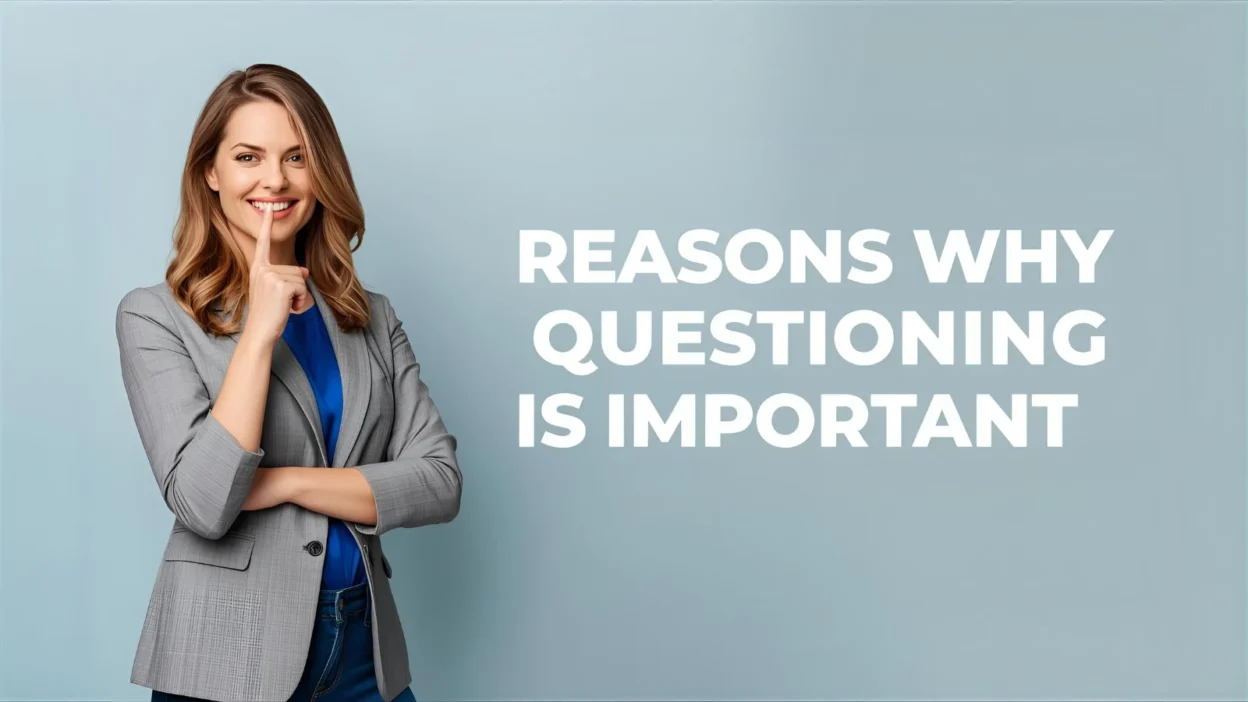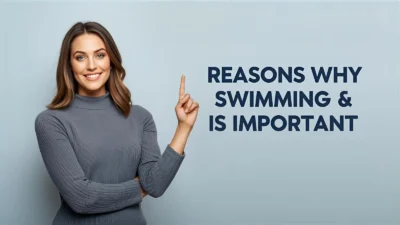Have you ever noticed how children constantly ask “why?” — and somehow, they seem to learn faster than adults?
That’s the power of questioning.
Questioning is more than curiosity — it’s the foundation of critical thinking, discovery, and innovation. It challenges assumptions, opens minds, and drives progress in every field — from science to art, business, and personal growth.
In this article, we’ll explore 48 deep and practical reasons why questioning is important, along with real-life examples, expressions, and how it shapes the way we learn and live.
1. Questioning Fuels Curiosity and Learning
Every great discovery starts with a question.
When we ask “why,” “how,” or “what if,” we open the door to learning and imagination.
🧠 Example: Einstein once said, “The important thing is not to stop questioning.” His curiosity led to theories that changed how we see the universe.
💬 Quote: “He who asks a question is a fool for five minutes; he who does not ask remains a fool forever.” – Chinese Proverb
2. It Encourages Critical Thinking
Questioning helps you analyze information instead of accepting it blindly.
It turns passive learners into active thinkers — people who evaluate, compare, and reason before forming opinions.
🎯 Example: Students who question facts often develop stronger reasoning and decision-making skills.
3. Questioning Promotes Innovation
Every innovation — from the light bulb to the smartphone — began with someone daring to ask, “Can this be done differently?”
🚀 Example: Steve Jobs questioned traditional ideas about technology and design, revolutionizing communication with Apple products.
Questioning challenges limits and sparks creativity.
4. It Helps Clarify Understanding
Asking questions removes confusion.
When you question instructions, ideas, or arguments, you gain clarity and avoid mistakes.
🗣️ Example: In classrooms, students who ask “Could you explain that again?” tend to understand topics more deeply.
5. Questioning Builds Confidence
Asking questions shows curiosity and courage — not weakness.
It signals that you’re engaged, thoughtful, and eager to learn.
💪 Example: In a meeting, asking intelligent questions can make you stand out as a proactive and analytical thinker.
6. It Strengthens Communication
Good communication isn’t just about speaking — it’s also about asking the right questions.
This helps avoid misunderstandings and shows genuine interest in others’ perspectives.
💬 Example: A good interviewer or manager uses open-ended questions to encourage deeper discussions.
7. Questioning Leads to Better Problem-Solving
When problems arise, asking questions like “What’s causing this?” or “What if we try this approach?” helps identify root causes and creative solutions.
⚙️ Example: Engineers and doctors rely on questioning to diagnose and fix complex issues.
8. It Encourages Independent Thinking
Questioning helps people form their own opinions instead of copying others’ beliefs.
🌱 Example: Philosophers like Socrates used questioning — known as the “Socratic Method” — to encourage independent thought and self-discovery.
9. Questioning Improves Decision-Making
Asking the right questions before making choices leads to smarter, well-informed decisions.
🧩 Example: Before investing money, questioning market trends, risks, and alternatives prevents costly mistakes.
10. It Strengthens Relationships
When you ask people thoughtful questions, it shows care and empathy.
It deepens connections and builds trust.
💞 Example: Asking a friend, “How are you really feeling?” opens space for honest conversation and support.
11. Questioning Fights Ignorance and Bias
Blind acceptance breeds misinformation.
By questioning what we read or hear, we challenge stereotypes, false news, and assumptions, promoting fairness and truth.
⚖️ Example: Journalists and researchers rely on questioning to uncover facts and expose hidden truths.
12. It Enhances Self-Reflection
Questioning isn’t just for others — it’s also for yourself.
When you ask “Why did I react that way?” or “What truly matters to me?”, you grow emotionally and mentally.
🧘 Example: Journaling with self-reflective questions builds self-awareness and emotional intelligence.
13. It Drives Education and Teaching
Teachers who encourage questions create interactive, student-centered learning environments.
It turns classrooms into spaces for curiosity rather than memorization.
🎓 Example: Inquiry-based education allows students to explore real-world problems through guided questioning.
14. Questioning Inspires Leadership
Leaders who ask questions make better decisions and build stronger teams.
They seek input, understand perspectives, and value collaboration.
👔 Example: Great leaders like Nelson Mandela and Oprah Winfrey are known for their curiosity and humility in asking others’ opinions.
15. It Leads to Lifelong Growth
Questioning is a habit of lifelong learners.
It keeps the mind sharp, adaptable, and open to new ideas.
🌍 Example: People who constantly question and learn stay relevant in a rapidly changing world.
💬 Quote: “Judge a man by his questions rather than his answers.” – Voltaire
🧠 Common Idioms About Curiosity and Questioning
| Idiom | Meaning | Example |
|---|---|---|
| “Curiosity killed the cat” | Being too curious can be risky | Curiosity killed the cat—but satisfaction brought it back! |
| “Put on your thinking cap” | Start thinking seriously | It’s time to put on your thinking cap and ask questions. |
| “Burning question” | An important or urgent question | The burning question is: what happens next? |
| “Food for thought” | Something worth considering | His question gave us a lot of food for thought. |
| “Call into question” | To doubt or challenge | The evidence calls his statement into question. |
🗣️ Synonyms and Related Words for Questioning
| Term | Meaning | Example |
|---|---|---|
| Inquiry | Asking for information | Scientific inquiry drives discovery. |
| Curiosity | Desire to know or learn | Her curiosity led her to study psychology. |
| Interrogation | Formal questioning | The lawyer began the interrogation. |
| Examination | Careful study or testing | A deep examination reveals the truth. |
| Doubt | To feel uncertain | It’s healthy to doubt before accepting facts. |
✍️ Grammar Tip: How to Use “Question” and “Questioning”
| Form | Example Sentence |
|---|---|
| Noun | He asked an important question about ethics. |
| Verb | She questioned the logic of the argument. |
| Adjective | His questioning nature made him a great journalist. |
✅ Correct: Questioning improves your understanding.
❌ Incorrect: He is questioningly a teacher.
🌟 Real-Life Example: Socrates and the Power of Questions
Socrates, the ancient Greek philosopher, used continuous questioning to help people discover truth and wisdom.
His “Socratic Method” is still used today in education, therapy, and leadership to inspire critical thinking and reflection.
💬 Lesson: Great minds don’t give answers—they ask better questions.
💭 How to Practice Effective Questioning
- Ask open-ended questions – Use how, why, and what to invite deeper responses.
- Listen actively – Don’t just hear answers; understand them.
- Be respectful and curious – Genuine curiosity encourages honest discussion.
- Reflect on answers – Use what you learn to grow or improve.
- Don’t fear not knowing – Admitting uncertainty is the first step toward learning.
❓ FAQs About Questioning
Q1: Why is questioning important in learning?
It helps students think critically, explore new ideas, and understand topics deeply instead of memorizing.
Q2: How does questioning improve communication?
It encourages clarity, shows empathy, and prevents misunderstandings by allowing open dialogue.
Q3: Why do leaders need to ask questions?
Questioning helps leaders gather information, make informed decisions, and motivate their teams through shared understanding.
Q4: What are examples of good questions?
Questions like “What can we do differently?” or “How do you feel about this?” spark reflection and collaboration.
Q5: Is questioning the same as doubting?
Not always. Questioning is curiosity-driven; doubting is skepticism. But both can lead to truth when used wisely.
🌿 Conclusion
Questioning is the spark that lights the fire of knowledge.
It challenges assumptions, drives innovation, and helps us grow wiser with every answer — and every silence.
From Socrates to scientists, children to CEOs, the most powerful minds have one thing in common:
They never stop asking “why?”
So, keep questioning.
Because every great answer begins with one brave question. 💡
💬 “The wise man doesn’t give the right answers, he poses the right questions.” – Claude Lévi-Strauss

Joy Root is a content writer at Whygenix.com, creating clear, engaging articles that explain complex ideas simply, helping readers understand why topics matter in everyday life and personal growth.




